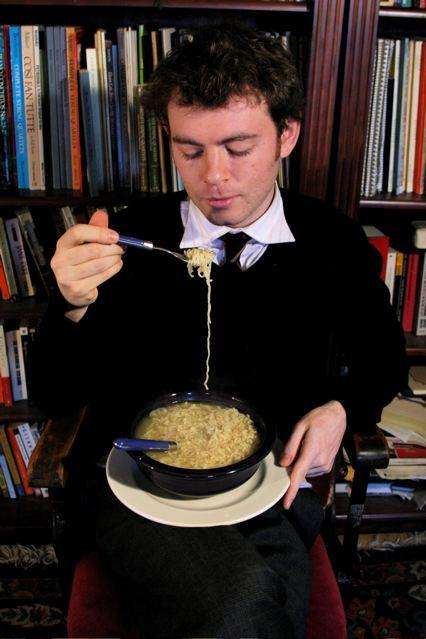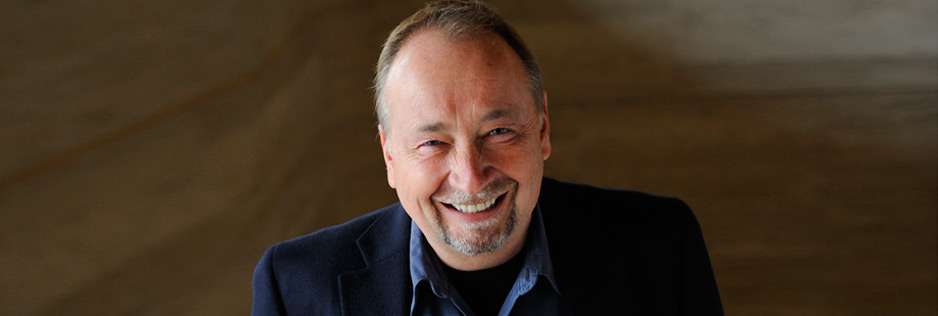|
Back
Variations On Hart Crane New York
Zankel Hall, Carnegie Hall
03/22/2012 -
Orchestra: Underground: American Accounts
Milton Babbitt: From the Psalter (ACO Commission, 2002)
Michael Daugherty: Trail of Tears (New York Premiere, ACO Co-Commission)
Aaron Copland: Clarinet Concerto
Gabriel Kahane: Crane Palimpsest (World Premiere, ACO/Jerome Foundation/NYSCA Commission)
Judith Bettina (Soprano), Amy Porter (Flute), Derek Bermel (Clarinet), Gabriel Kahane (Piano, guitars and vocals)
American Composers Orchestra (ACO), George Manahan (Music Director and Conductor)

G. Kahane (© Jen Snow)
Legend has it that when one rang the bell of Orson Welles’ mansion, the multi-faceted mastermind would come out of three doors and appear at six windows simultaneously.
I had this feeling with the young and already famous Gabriel Kahane last night. Yes, he wrote the music for Crane Palimpset, and yes, he played piano quite brilliantly as well as guitars. And yes with an easy, flexible very pleasing baritone which could go from soothing high register to bistro croon to Arlo Guthrie melody growl, he sung his way through the piece.
But just to seal his Chuzpah Award, he had not only set the first section of Hart Crane’s metaphysical masterpiece, The Bridge to music, but as the “palimpset” of the Crane words, he had written and sung his own songs as a juxtaposition
A few thoughts. Setting Crane’s oh so personal arcana, with its own references on music is like putting notes to Finnegans Wake. It can be done, but should it be done?
(Or to make this really absurd, could anybody imagine putting, say, Nietzsche’s drama on Zarathustra to music? The idea is laughable.)
And second, while this so gifted, so literary-minded composer obviously felt it was necessary to play all the roles (except conductor), it inevitably felt like a tour de force, perhaps even distracting from the composition itself.
(“Is he gonna play the piano now?” “That’s his own song. Clever guy.” “Hey, now he’s takin’ off the guitar and singin’ to the piano and helpin’ conduct the orchestra.”)
Still, Mr. Kahane has the genes to make this go, since his father, Jeffrey Kahane, plays and conducts a singularly genial Mozart. His son obviously takes after him in genial music.
The music was as eclectic as Gabriel Kahane’s career. Genres varied from complex to bluesy to plainly lyrical. Words from Crane and words from Kahane strolled on the journey together, hand in hand.
Yet that could have been a mistake. Even reading The Bridge, one needs a skeleton key, a brain which can fathom the difficulties while embracing the imagery. Composing the Crane with a variety of styles as well as one’s own lyrics, frequently difficult to understand in Zankel Hall under the orchestra, was an arduous challenge, often overcoming the virtues of the music.
His was one of two pieces by living composers. Michael Daugherty wrote a kind of retro work, a concerto for flute based upon a subject going back to Dvorák and MacDowell, the innocent American Indians, losing frontiers and sadly going on a long march. The story was told in literal fashion, ending with a frenetic Rain Dance. Very conservative it was, at its best with a Roy Harris openness, at worst like Ferde Grofe.
One couldn’t, however, ignore Amy Porter’s extraordinary flute solos. Yes, Mr. Daugherty had written in a few trick sounds. But the main thing was her ease at her momentum for his ceaseless technical demands.

G. Manahan (© Richard Bowditch)
Conductor George Manahan led his orchestra in two other American words, both by established composers on opposite sides of the spectrum.
Milton Babbitt–who, like Arnold Schoenberg and Gabriel Kahane–wrote popular nightclub tunes when young–spent most of his life penning the most difficult, prickly and complex music. In fact, before he died last year, Mr. Babbitt wrote (and dedicated) a work for the ACO and soprano Judith Bettina. So we know that From The Psalter, was the authoritative one.
Where Kahane was free to set poems with a flexibility of genres. Mr. Babbitt scrupulously kept to the complex metres of the Elizabethan Sir Philip Sydney. His complex lines did not, though, detract from a scintillating, energetic and surprisingly vigorous work, part sung, sometimes spoken by the wondrous Ms. Bettina.
Finally came an American work on the more popular side, Aaron Copland’s lyrical Clarinet Concerto. (Prefaced by a recording of the composer pleading for more American music!)
Benny Goodman used his well-deserved jazz earnings to commission both Bartók and Copland to write for his instrument. This piece, played by Derek Bermel, was a bit jazzy, very lyrical, produced frequent solo riffs, and showed all the trademarks of that innately inspired composer.
Harry Rolnick
|